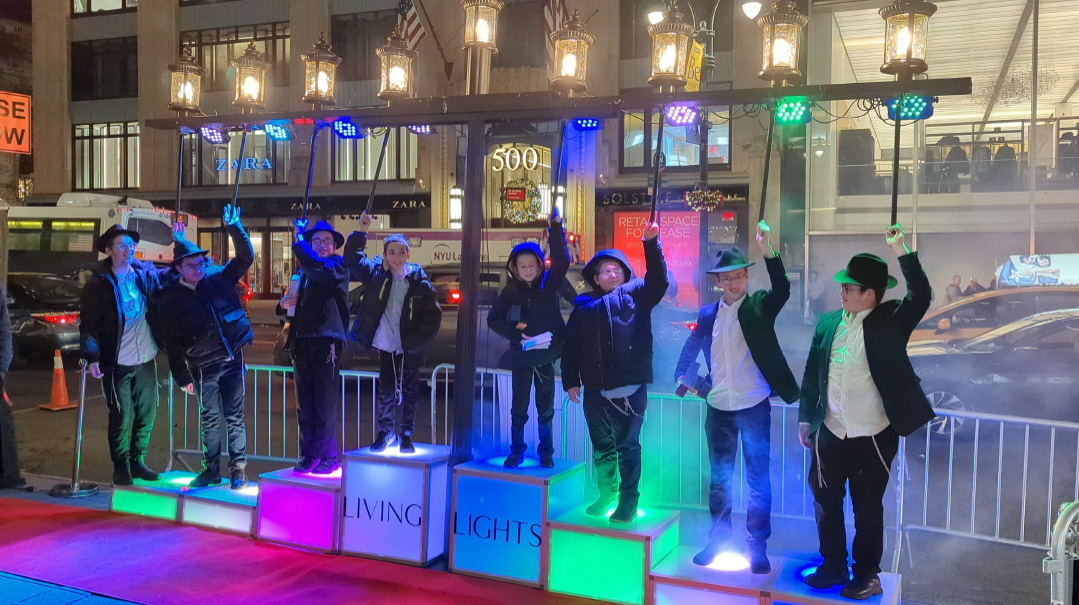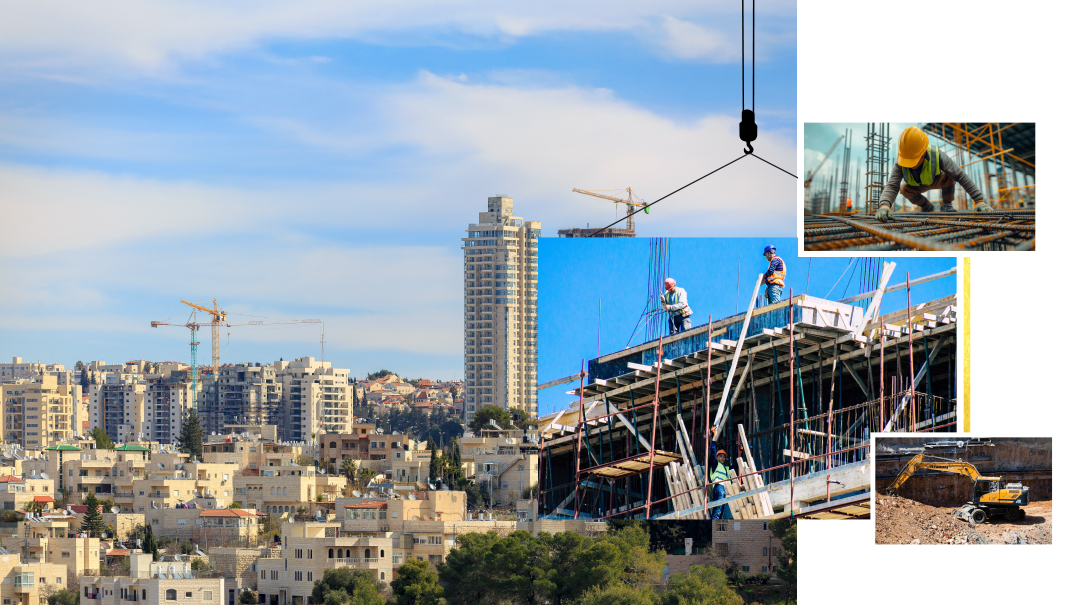No Gulf Between Us
| May 3, 2022A Williamsburg chassid bridges the gulf in Saudi Arabia
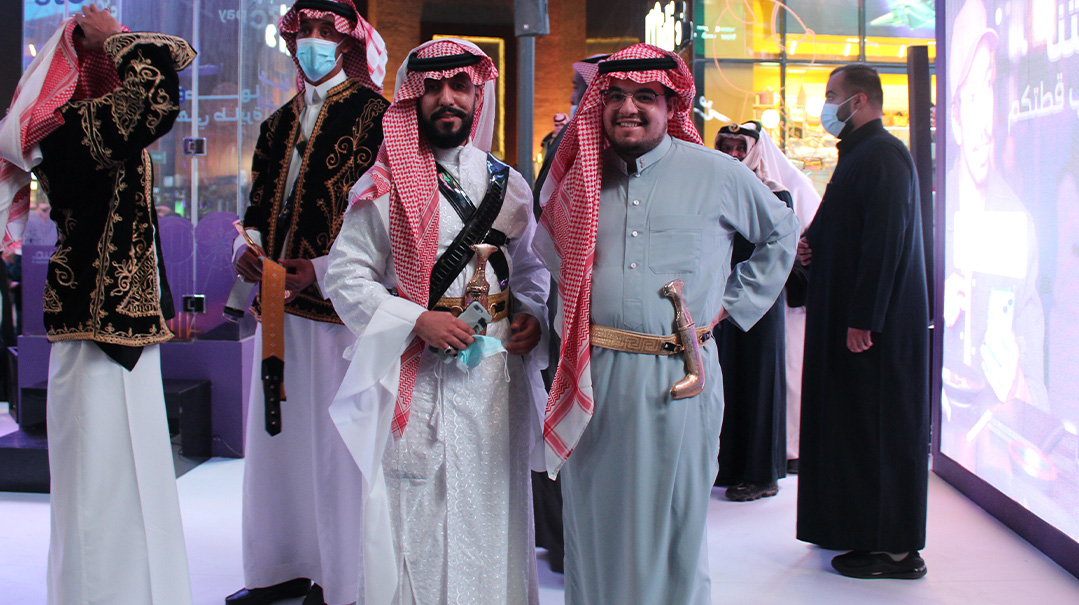
Saudi Arabia might not appear on most people’s bucket lists, but that didn’t stop world traveler Moshe Klein from packing his bags and heading for Riyadh. While he tried not to attract attention, he did give a curious Saudi diplomat a tip on how to keep your peyos curly
There’s no kosher food, no Jewish community, no Chabad house, practically no cultural attractions or museums, and it isn’t even tourist friendly. So what exactly motivated Williamsburg resident Moshe Klein to make not one, but two trips to Saudi Arabia?
Klein initially began visiting off-the-beaten-path destinations as a hobby, but his travels eventually evolved into a business, and today the 28-year-old Satmar chassid lectures about Jewish history all over the world. Some of the more unique destinations he’s visited include Baghdad, Somalia, Tunisia, Cuba, and Ethiopia, and Klein enjoys documenting small Jewish communities, particularly vanishing historic sites.
Klein made his first trip to Saudi Arabia in 2019, making a short stop in the port city of Jeddah after spending some time in Dubai and Qatar. Saudi Arabia is the most parochial of the seven Persian Gulf countries — women have only been allowed to drive since 2017 and the requirement for restaurants to have separate entrances for men and women was dropped just two years ago. So while it isn’t the kind of destination that appears on most people’s bucket lists, when the opportunity presented itself again this past winter, that made it all the more tempting for Klein to pack his bags, stock up on kosher essentials, and head for Riyadh.
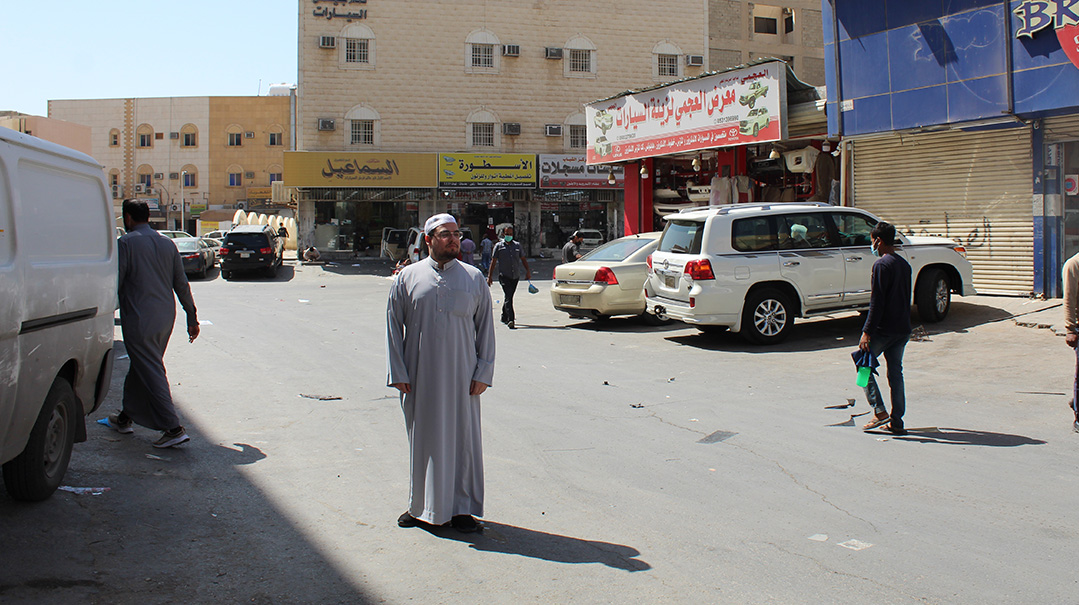
Fly the Friendly Skies
There are limited flights between New York and Saudi Arabia each week and Klein found that his trips on Saudia Airline were anything but routine. While he’s gotten kosher meals while flying Qatar Airways, no such option is available on Saudia. And although Emirates Airline and Kuwait Airways offer passengers alcoholic beverages, Saudia is a “dry” airline, with only soft drinks allowed on board. Saudia’s in-flight entertainment system includes the entire Koran and a few select Arabic films.
The average American might find certain elements of traveling with Saudia unfamiliar, but for Klein, most were par for the course. Women are required to cover their arms and legs and to avoid sheer and tightly fitting garments on board, while modesty standards for male passengers forbid shorts.Similarly, while the concept of in-flight prayers has befuddled many a Western flight attendant on flights in and out of Tel Aviv, Saudia has a designated on-board prayer area in the rear of the plane.The space, which normally holds between six and nine airline seats, is large enough to accommodate approximately ten worshippers and includes traditional Muslim prayer rugs.
“It’s like a mini mosque,” says Klein.“The crew didn’t allow me to put on tefillin there when I flew on Saudia in 2019, but on this flight they actually did.”
Among Klein’s fellow passengers was a man traveling with four wives, and a Saudi diplomat who confided that while he’d met Jews while studying at Harvard, this was his first face-to-face encounter with a chassidic Jew. Shooing his assistant away to facilitate what was clearly intended to be a private conversation, the diplomat leaned over to discreetly inquire about what was clearly a personal matter. Lowering his voice, he gestured to Klein’s peyos and asked, “How do you make them so curly?”
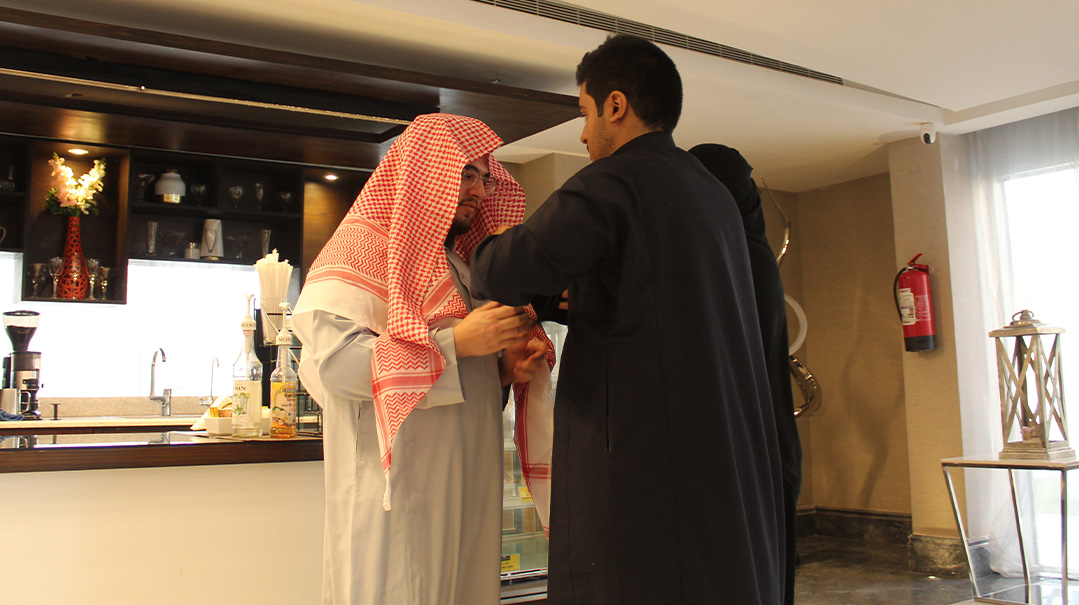
Staying Safe
When visiting places where his Jewishness might stir up problems, Klein is careful to dress in a way that won’t attract any unwanted attention.
“I’m not looking to hide my Yiddishkeit, but in some places I’m not always interested in advertising it either,” explains Klein. “Still, no matter where I go, I never hide my Yiddishkeit completely — that’s my own meshigas. I might wear a cap, but I’ll have my peyos out, or I might dress casually, but have my tzitzis out.”
On his first foray into Saudi Arabia in 2019, Klein was careful to wear a cap, but this time around he felt comfortable walking the streets in a white shirt with his peyos completely visible. He even managed to find a few familiar foods to supplement the rations he’d brought from home, scoring American green beans and sour pickles with proper hechsherim in local stores.
Riyadh does have a Jewish community, albeit an extremely small one, primarily Jewish expats who live there for business reasons. To the best of Klein’s knowledge, none are Orthodox. Back in 1990 and 1991 during the Kuwait War, there were actually some American Jewish soldiers stationed in Saudi Arabia. As Yom Kippur neared, they approached the Saudis to discuss their religious needs, hoping for a place where they could daven.
“They told them that they could only daven on the boat that they came in on,” says Klein. “They didn’t want them to be m’tamei Saudi Arabian soil with Jewish prayers.”
After his trip to Riyadh, Klein did a short jaunt to Egypt, but surprisingly enough, he said he felt safer in Saudi Arabia.
“I didn’t have my peyos out in Egypt for a single moment,” Klein says. “Even though Egypt has a decent relationship with Israel, you feel safer in a country like Saudi Arabia, which is a monarchy. Giving someone a hard time means that you are disagreeing with the government and you could end up in prison for 20 years.”
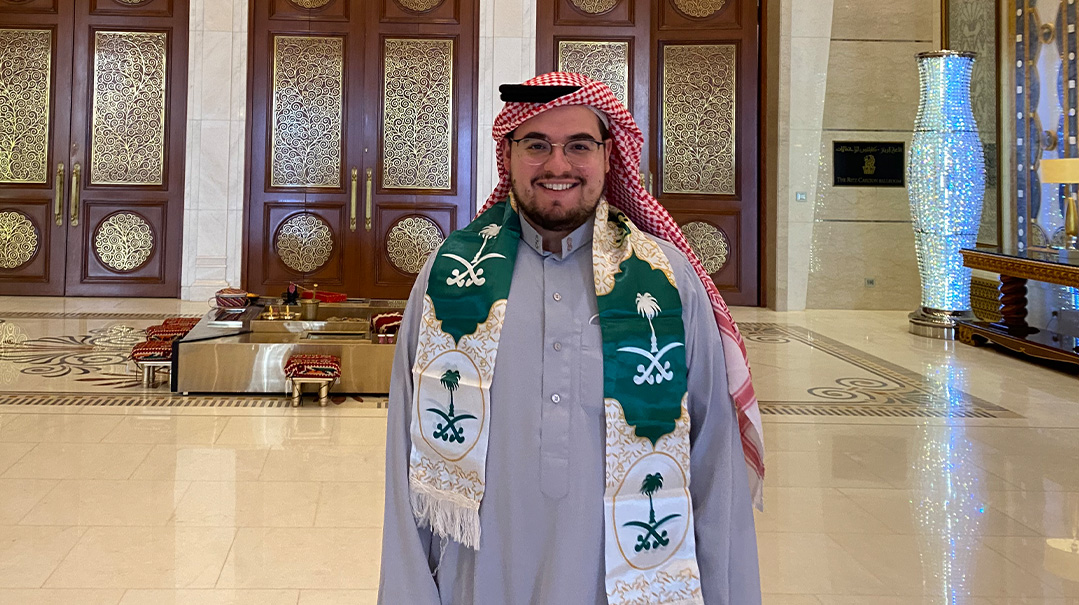
Prison Hospitality
Klein stayed at the Ritz-Carlton, which features 600-year-old olive trees, a world-class spa and opulent suites. There was nothing in all the luxury to indicate that the hotel had been turned into a five-star prison for the crème de la crème of Saudi Arabia not that long ago.
It was November 2017 when nearly 400 Saudi princes, government officials and business tycoons were rounded up and detained in the majestic Ritz-Carlton. Saudi authorities described the incident as a crackdown on corruption by Crown Prince Mohammed bin Salman. It reportedly involved beatings, interrogations, abuse, and financial shakedowns involving billions of dollars, described by the Saudi government as “financial settlements” for alleged wrongdoings.
But it was business as usual at the Ritz when Klein stayed there, and he found that its stint as a gilded jail wasn’t something hotel employees wanted to discuss. Still, while there were Western diplomats aplenty at the property, which was also hosting a huge celebration that featured mountains of plump dates and other Saudi Arabian treats, the darker undertones were hard to ignore. All vehicles were meticulously searched before being allowed onto the premises, and Klein was politely told by hotel staff not to use his camera, although cell phone pictures were allowed. And a conversation with an elderly employee ended abruptly when Klein asked if the hotel had ever been used for anything other than regular hospitality.
“He suddenly told me he needed to get back to work and left,” says Klein. “After that, he avoided eye contact with me. I got the message and never talked about it again.”
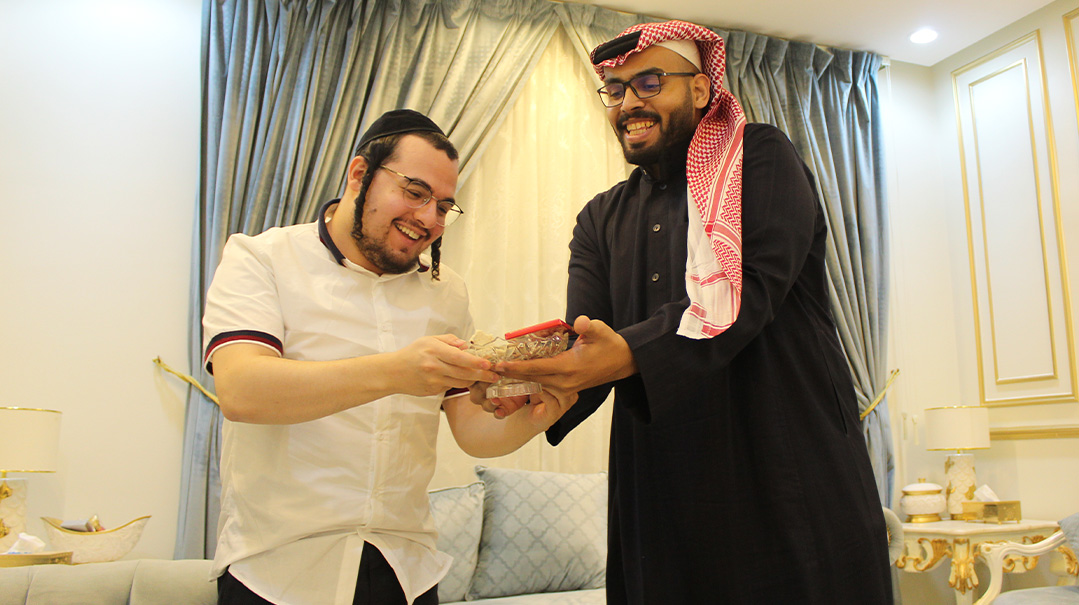
Times Square, Riyadh Style
It was 2016 when Mohammed bin Salman (MBS) first announced Vision 2030, an ambitious multilayered plan to modernize Saudi Arabia. One of those initiatives included opening up the country to tourists for the first time ever in 2019, with the Riyadh Season Festival bringing live entertainment, events, eateries, and more to Saudi Arabia’s capital city.
Breaking with tradition, MBS transformed Riyadh Boulevard, a major thoroughfare, bringing in coffee shops, stores, and oversized video screens sporting advertisements. “It’s pretty much a Times Square,” explains Klein, “except that I don’t think it would be bad for a yeshivah bochur to go there.”
Klein’s February trip coincided not only with Riyadh Season, which ran this year from November 1st to April 1st, but also with the first-ever celebration of Saudi Founding Day on February 22nd. The holiday was decreed by royal order to recognize the creation of the Saudi state in 1727, and the Saudi Ministry of Tourism emailed all Saudi visitors suggesting they wear traditional Arabic clothing as part of the celebration of Saudi Founding Day.
“People were driving around Riyadh with their cars topped with big Saudi Arabian flags,” says Klein. “They were wearing traditional Saudi garb with swords, and I did as well, to blend in with everyone else — I’m dark skinned so it wasn’t that hard.”
Klein did his best to strike up conversation and mingle with the locals, and he made waves when he told a few young adults he met that he was Jewish. “They had never met any Jews before,” Klein says. “They danced with me and took selfies.”
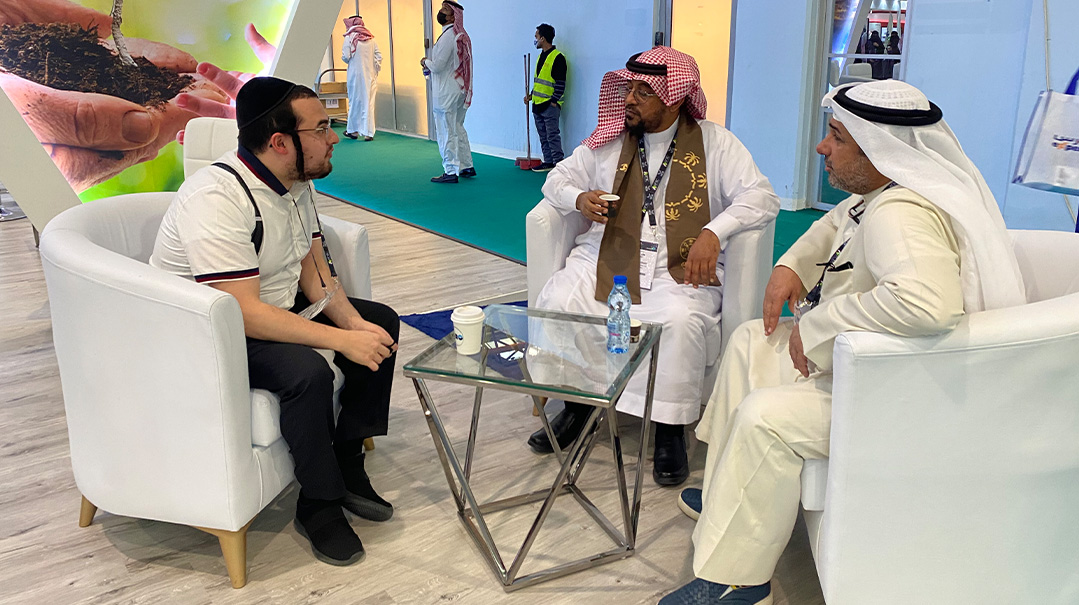
Who’s the Real Mohammed Saud?
The 36-year-old MBS isn’t the only young Saudi making news for following a path that diverges from the traditional. Mohammed Saud, a 32-year-old Saudi pro-Israel blogger, became a controversial figure in 2018 when he called for peaceful coexistence between Saudi Arabia and Israel. He made headlines again in 2019 when he was attacked by Palestinian extremists on a visit to Israel, and he’s posted multiple videos of himself singing Jewish songs on Twitter. Speculation has swirled about Saud, with some wondering if he’s actually a Yemenite Jew, while others have suggested that he’s a government plant being used to normalize relations with Israel.
Klein became acquainted with Saud through a mutual friend, and the two have been in touch over the years. When planning his trip to Saudi Arabia, a face-to- face meeting with Saud was a must-do on Klein’s schedule. The two men met twice in Saud’s home where they schmoozed and sang Jewish songs together, with Saud offering his guest snacks that included strictly kosher chocolate. A video that Saud posted of himself dancing with Klein to a Yiddish tune got 70,000 views within hours of its posting.
“As the first Saudi citizen to visit Israel, he’s become very popular,” explains Klein. “He met Bibi Netanyahu in his office when he was still prime minister and met senior government officials in the Knesset. He is a real person, very smart, and while there are all kind of curiosities about him, whether or not he is wealthy and if he works for the government, he’s just a normal fellow with average struggles who recently finished his master’s and now works at a company.”
All Roads Lead to Jerusalem
Klein timed his visit to coincide with the International Petroleum Technology Conference, hosted at the Riyadh International Convention and Exhibition Center. The flagship event for the oil and gas industry in the eastern hemisphere, the conference has hundreds of booths and draws a considerable-sized crowd. Klein, who accompanied a representative of a US-based insurance firm, also an Orthodox Jew, took advantage of the opportunity to speak with conference goers.
“More than once people said to me, ‘I can’t wait to visit your country,’ ” Klein says. “They associated me right away with Israel.”
While all of Klein’s interactions at IPTC were positive, and he experienced none of the hostility that one might expect at a conference in an Arabic country where Jews are a rarity, they all drove home the same point.
“As much as American Jews don’t want to believe it, people will always associate you with Israel,” Klein says. “It doesn’t matter if you’re pro-Israel or not. People will always look at you as part of Israel.”
(Originally featured in Mishpacha, Issue 909)
Oops! We could not locate your form.

